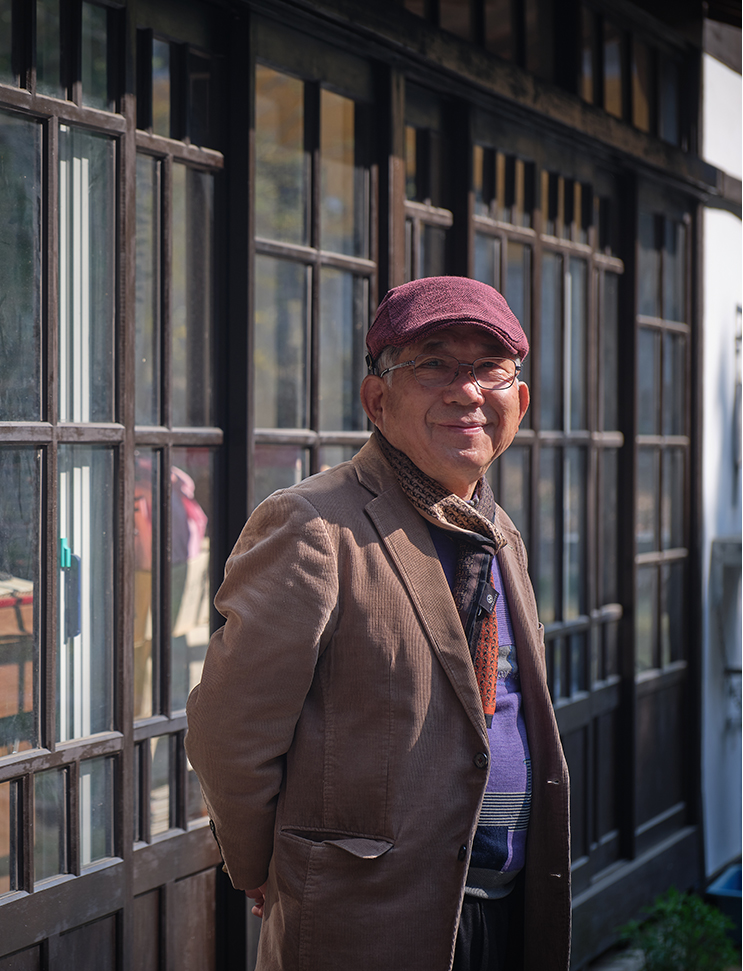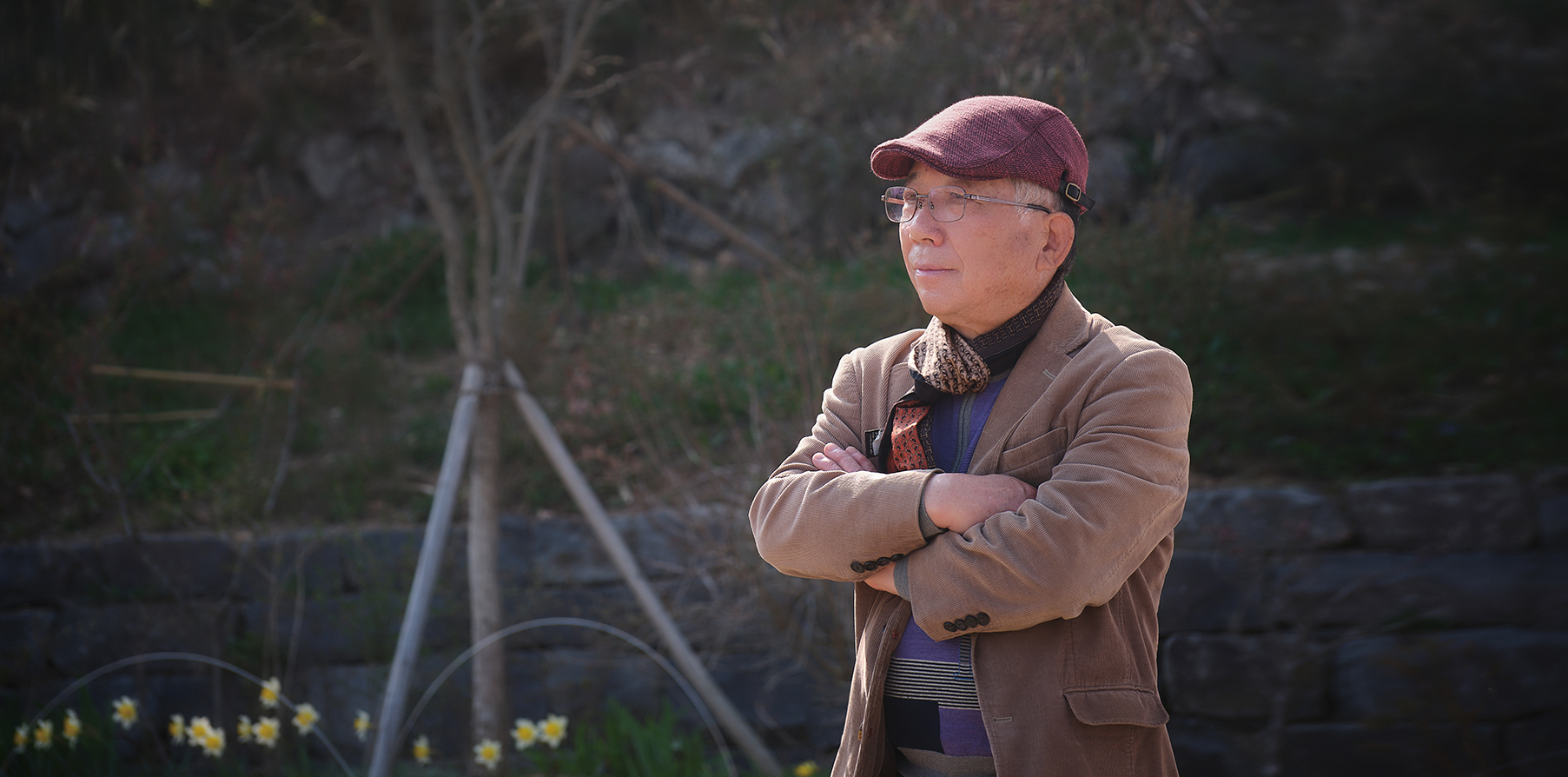Interview
Ageless Wonder
Prolific Poet
“Grass Flower” is the poem most beloved by the Korean mainstream. Though its hallmark prose and pure rhythm give it the impression of being by a young poet, it was written by poet Ra Tae Joo, 75, who marks half a century of literary activity this year.
Written by• Kim Samuel
Photographed by• Studio Kenn
Poet Ra Tae Joo doesn’t drive. In the infrequent moments when he isn’t biking, he either walks or hops on rides while immersed in thought. He stops to take pictorial and textual records of flora he comes across. Even on the date of this interview, he arrives on his bike.
Inspiration Found Everywhere
How much / I adore you / need not be known / (...) / I no longer need you / for me to keep / loving you. – “From Me To You” (1980)
“Writing poetry is a lot like picking up discarded gems,” he said. “Whether from people, nature or the world, anything is capable of sparking inspiration. Poetry is not some aloof entity. Anything that affects my heart and mind can become poetry.”
Ra said he first wanted to become a poet at the age of 16. A letter he sent to his first love was never returned due to intervention of the schoolgirl’s father. Regardless, this incident marked the start of his writing poetry in the form of letters. “From Beneath the Bamboo Forest,” his entry in the 1971 spring literary contest of the daily Seoul Shinmun that marked his debut as a poet, speaks of loss. “People whose presence I still miss and whose company I yearn for; my poems are like love letters addressed to the world,” he said.
Concise But Effective
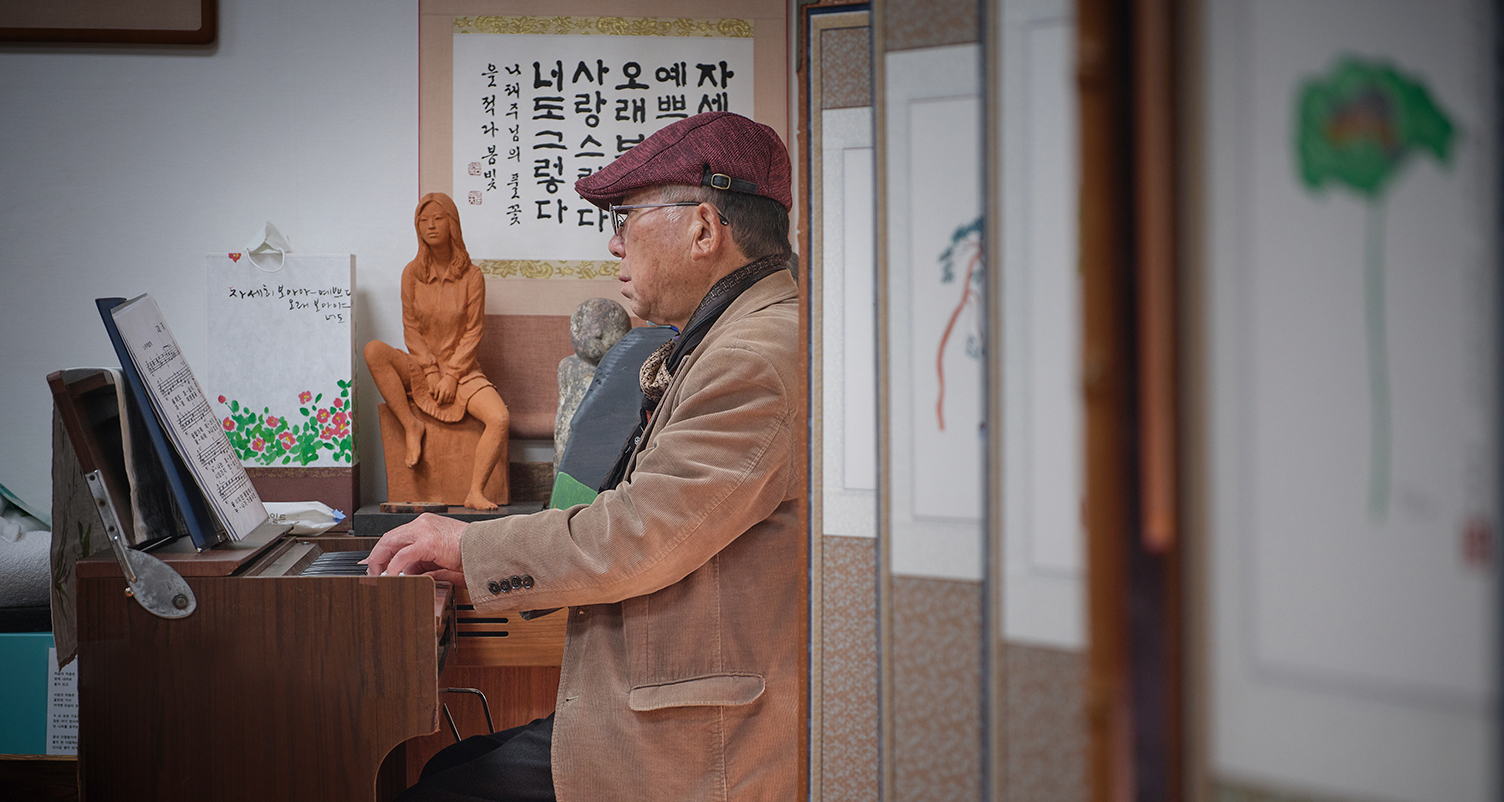
Ra Tae Joo, one of Korea’s greatest poets, runs Pulkkot Literary House in Gongju, Chungcheongnam-do Province.
Despite holding a teaching job for 43 years, Mr. Ra kept writing consistently. He once took his students outside to draw flowers together, telling them, “Flowers are (not to be looked in passing but) to be examined carefully and consistently.” Then he muttered to himself, “So are you guys.” He rushed back inside to write down what he had just said, and this marked the birth of his beloved poem “Grass Flower.”
Beautiful upon a closer look / Lovely upon a detailed look / So are you. – “Grass Flower 1” (2002)
“The grass flower is not a special variety the way roses and lilies are. The flower buds from grass are too common to be rendered worthy, at least after a hasty look. Only those who make a close and detailed inspection on it will realize its beauty. The essence of this poem lies in the last line, ‘So are you.’ There’s a moment when minds and souls open up to one another after exchanging proper looks,” he said.
Though Mr. Ra has also written long poems, his short ones command greater popularity in a case of modern life possibly affecting the mainstream reception of literary works. Koreans nowadays prefer brief yet impactful prose that makes a point without fuss. “‘Grass Flower’ became special to me when I saw how much rapport readers had with it. It’s short and intuitive but has lasting resonance. That’s the kind of poem that can fit into our tiny hearts,” he said.
Poignant Farewell
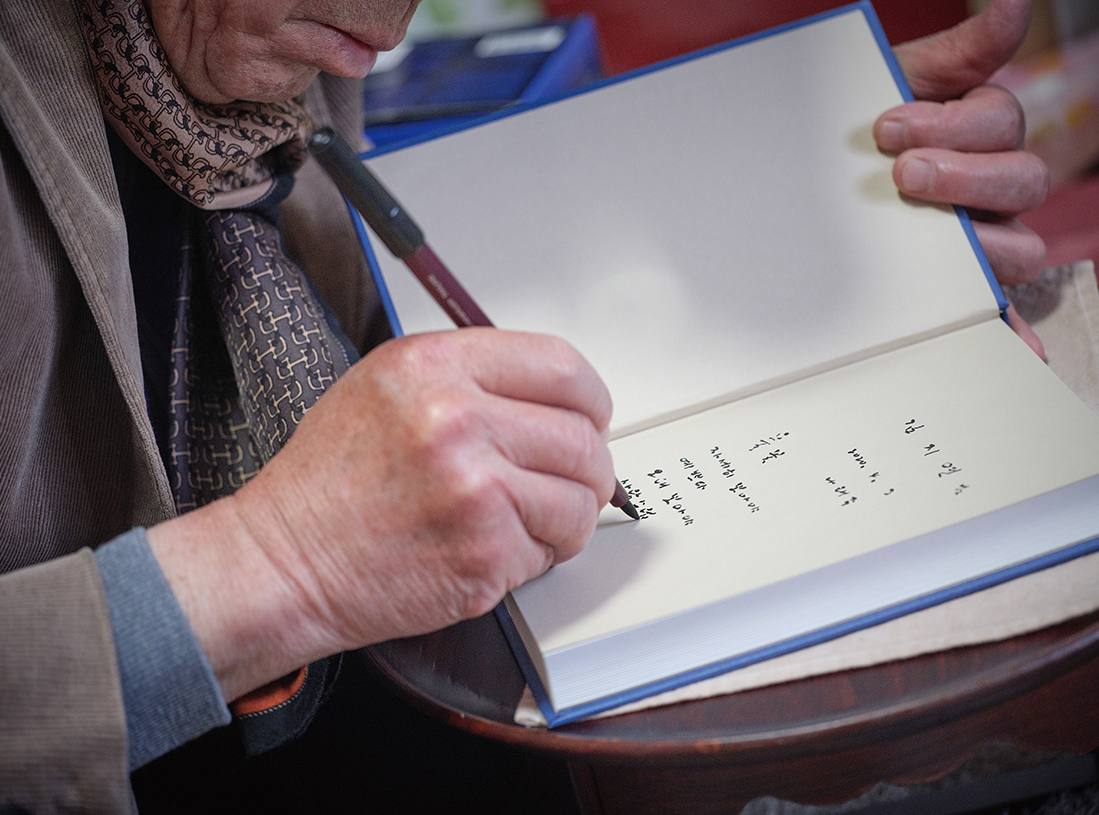
Ra Tae Joo handwrites a verse from one of his poems.
I asked the child, / When I pass away / will you come cry for me? / Instead of responding, / the child looked up with teary eyes. – “Flower Shade” (2011)
2007 was when Mr. Ra miraculously recovered from a life-threatening case of acute pancreatitis. His journey from the brink of death is reflected in his poems. “You know how a storm leaves debris? Miracles work no differently. Life-altering matters necessarily involve miracle, just like our presence, our being in the here and now. We have loads to be thankful for and toward each other,” he said.
We will miss each other dearly / But for now, we can endure. – “Epitaph” (2011)
This epitaph is what Mr. Ra wants on his tombstone, a poem in the form of a letter addressed to his child. With composure, he speaks of their mutual longing for each other’s presence. He also acknowledges that “enduring” what is felt now is not indefinite, as a person’s time on Earth is limited. Implicit is his plea for them to live their remaining lives to the fullest. The more you read the poem, the more poignantly the message sinks in.
Solace amid Turmoil
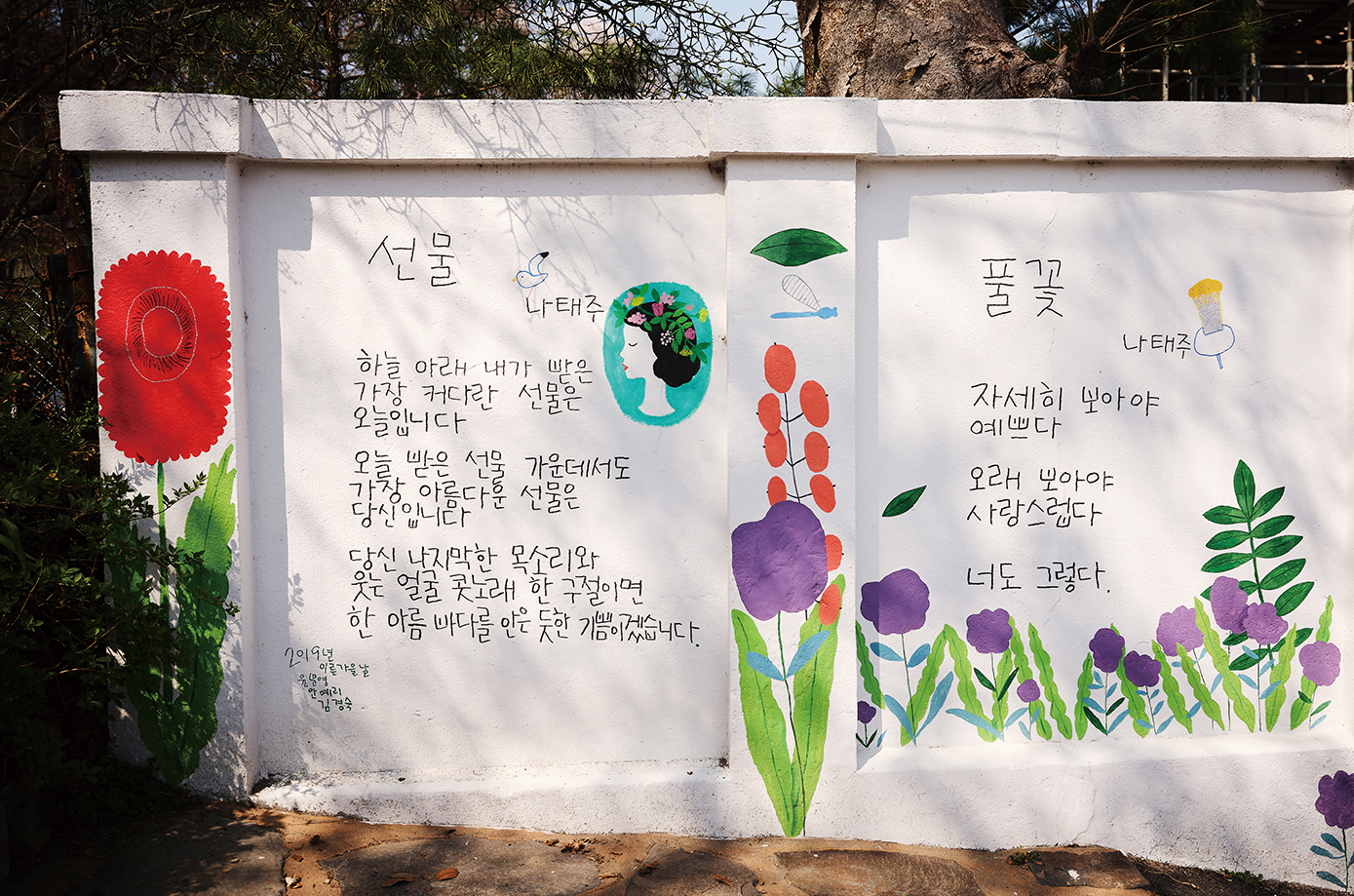
The sloped entryway to the literary house greets visitors with candid paintings and illustrations of the poet’s works.
The poet has sponsored the Grass Flower Literary Award (eligible to people both at home and abroad) for promising talent, and also funds the Gongju Literary Award out of his own pocket. In his hometown of Seocheon-gun County, Chungcheongnam-do Province, he sponsored the Shin Seok Cho Literary Award for two years until the county started contributing public funds. “The more literary awards, the better,” he said. “Remuneration is a must. Poets have no financial security. Even among literati, a great imbalance exists between those who have and those who have yet to receive recognition. I always try to shed light on voices who haven’t been heard. Someone has to keep striving to be merited the time of day, per se.”
Mr. Ra is often at Gongju Pulkkot Literary House. Whenever a bicycle is parked alongside the floral garden, the poet is present. On weekends, the site is teeming with visitors, many of whom sing along to the tunes he plays on the pump organ. “When I ask what brought them all the way here, many answer by saying they’re weary. In times like these, there’s nothing to soothe their souls, nowhere to loosen up and unwind. I never write poems to achieve fame. I simply hope to write verses that serve a practical function for people,” he said.
I swept the garden. / The corner of the earth cleared up.
– Verse from “Poetry” (1989)
